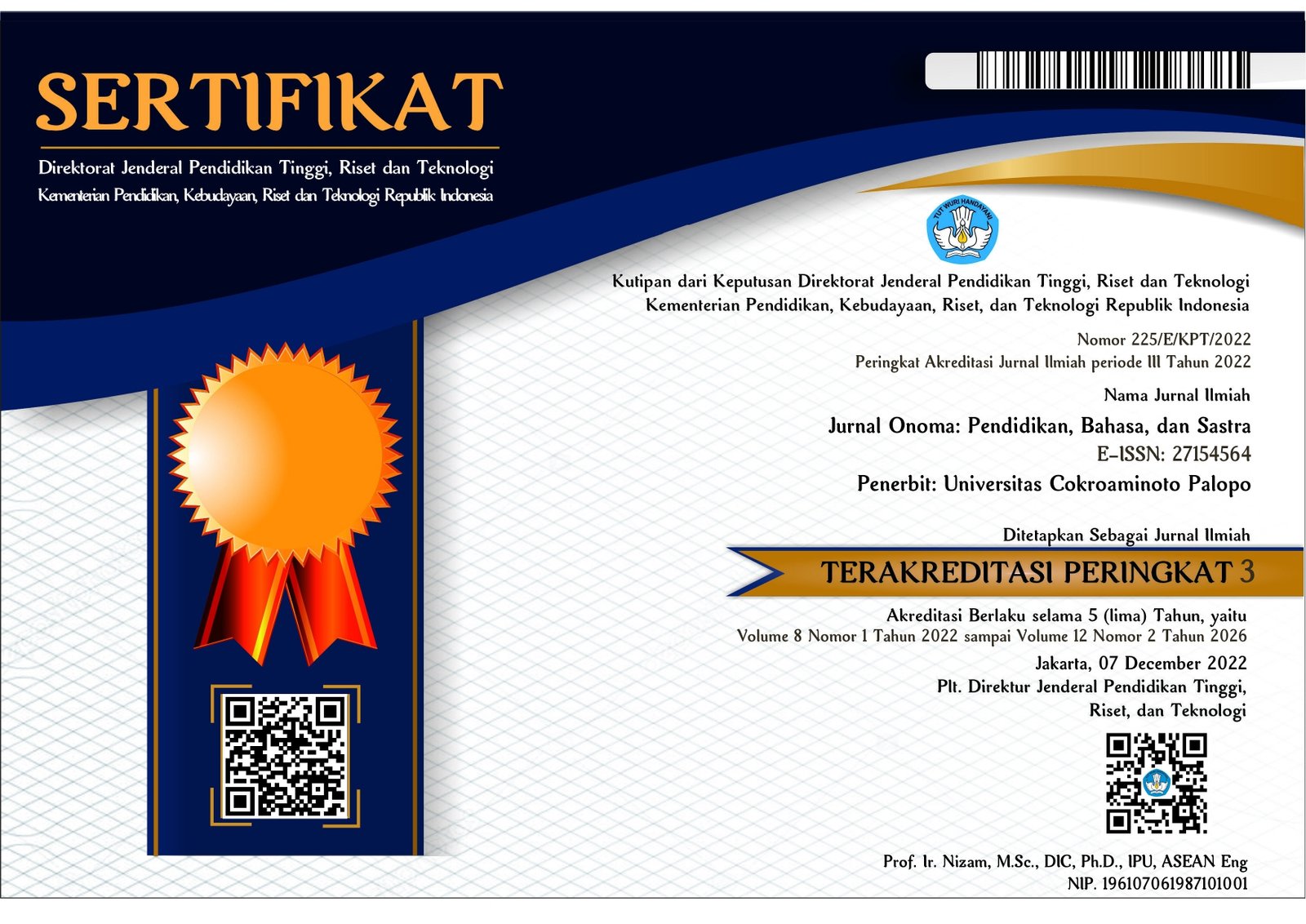About the Journal
Onoma is an academic journal published in May and November by the Indonesian Language and Literature Education Study Program at Cokroaminoto University Palopo. This journal presents scientific articles on Indonesian language, language, and literature education
Section Policy
The published articles are open submission, indexed and peer-reviewed
Open Access Policy
This journal is an open-access journal that provides immediate, worldwide, barrier-free access to the full text of all published articles without charge readers or their institutions for access. Readers have the right to read, download, copy, distribute, print, search, or link to the full texts of all articles. This journal provides immediate open access to its content on the principle that making research freely available to the public supports a greater global exchange of knowledge.
Plagiarism Check
The editor will run a plagiarism check using Crossref Similarity Check powered by iThenticate for the submitted articles before sending them to the reviewers. If an evaluation has an unfair number of similarities based on the result of the check, we will send back the article to the author to be revised.
Peer Review Process
Every submitted article will be independently reviewed. Jurnal Onoma applies blind review, where two anonymous reviewers will examine each article. The decision for publication, amendment, or rejection follows upon reports/recommendations. After being reviewed, there will be three kinds of editor decisions based on reviewers’ recommendation: 1) Accept Submission with No Revision; 2) Accept Submission with Revisions, or 3) Decline/Reject Submission.
Retraction
The papers published in this journal will be considered for retraction from the publication if: (1) they have clear evidence that the findings are unreliable, either as a result of misconduct (e.g. data fabrication) or honest error (e.g. miscalculation or experimental error); (2) the findings have previously been published elsewhere without proper cross-referencing, permission, or justification (i.e. cases of redundant publication); (3) it constitutes plagiarism; and/or (4) it reports unethical research. The mechanism of retraction follows the Retraction Guidelines of the Committee on Publication Ethics (COPE).












